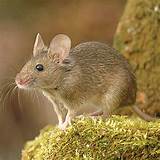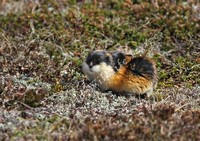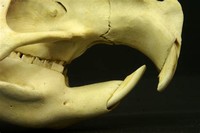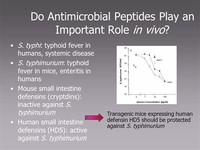Facts about Rodents

Some other rodents are also trapped for fur in the wild, while the chinchilla (Chinchilla laniger) of South America is raised for its fur.

Rodents are mostly distinguished by their teeth—the word "rodent" comes from the Latin word rodere, meaning "to gnaw."

Rabbits, hares, and pikas are not rodents, but members of another order, Lagomorpha.

Gophers, ground hogs, prairie dogs, and other burrowing rodents enrich the soil by mixing it and by burying vegetation.

Most rodents are small; the tiny African pygmy mouse (Mus minutoides) is one of the smallest rodents at only 2.5 inches (6 cm) long and weighing only .25 oz (7 grams).

Most rodents eat plants, including seeds, fruit, grasses, and leaves, as well as the bark of trees.

Many rodents have an average life span of only a year or less, although some larger rodents such as beavers and porcupines can live over 20 years.

Rodents are members of the order Rodentia, which is the largest order of mammals.

Rodents and bats are the only orders of placental mammals with species native to Australia.

Rodents are part of the clades Glires (along with lagomorphs), Euarchontoglires (along with lagomorphs, primates, treeshrews, and colugos), and Boreoeutheria (along with most other placental mammals).

Rodents are often the most abundant small vertebrates in their habitats and are an important source of food for many other animals, including birds, reptiles, and other mammals.

Norwegian lemmings (Lemmus lemmus), and some other rodents, undergo "population explosions" every few years.

Rodents lack canines and first premolars, which creates a space between their incisors and their grinding teeth.

Rodents are mostly distinguished by their teeth—the word "rodent" comes from the Latin word rodere, meaning "to gnaw."

The greatest impact of rodents on humans began when agriculture started and people chose to live in settled homes.

Many rodents living in colder climates hibernate to conserve energy during the winter.






